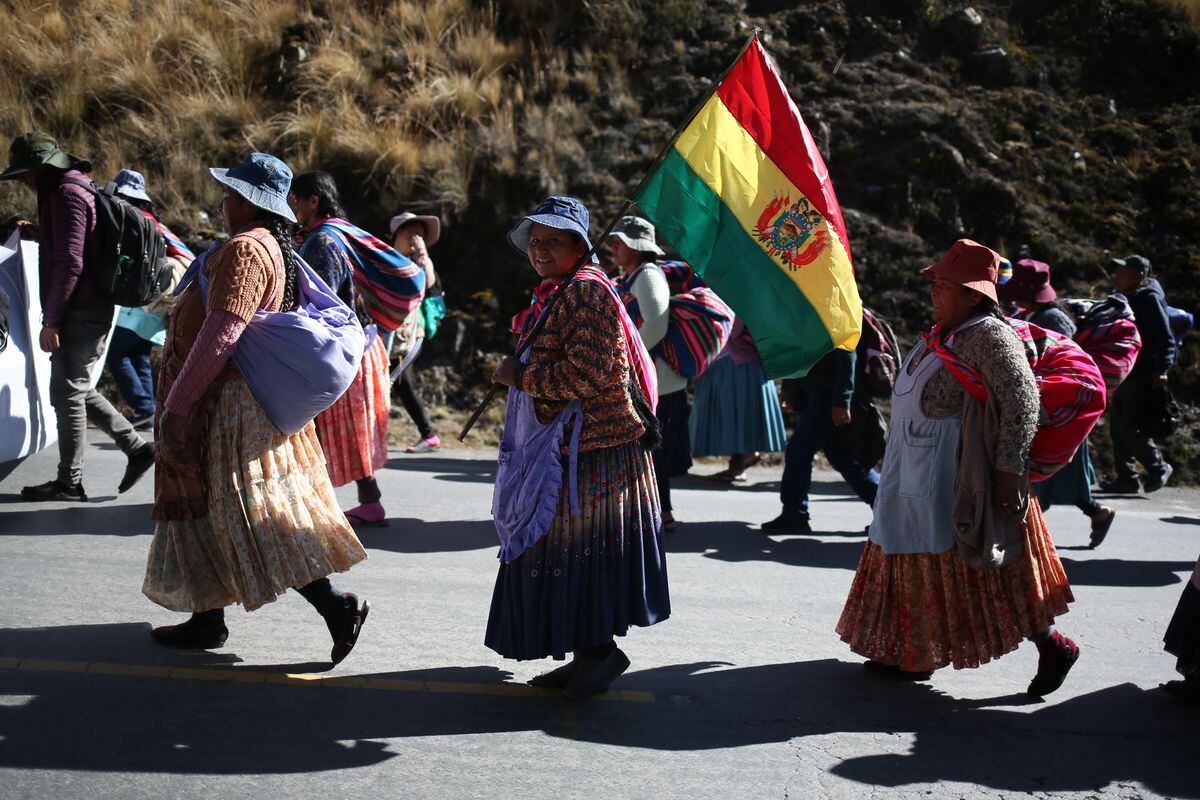
The disqualification of Evo Morales as a presidential candidate by Bolivia's Plurinational Constitutional Court (TCP) in December last year could not have occurred without a reaction from his base. The supporters of the former Bolivian president (2006-2019) have indefinitely cut off routes in his bastion, the coca-growing region of Chapare, and blocked the country's most important economic route, which connects the administrative capital La Paz with the wealthy Santa Cruz de la Sierra. They also paralyzed traffic in the Potosí region. This adds a new type to the long and varied history of road closures in Bolivia. For the first time these are being carried out against the judiciary.
The “Evistas” occupying the streets are demanding that the judges of the Supreme Court, including those of the TCP, who have made it impossible for Morales to run again, resign from their positions and immediately call judicial elections. From the protesters' perspective, Bolivia is suffering a “judicial coup” due to two events: the indefinite extension of the judges' mandate, which ended on December 31, and the undated postponement of the planned 2023 judicial elections. The government and most analysts assume that The underlying aim of the protests is another: to prevent the electoral disqualification of Morales by promoting the formation of a new TCP that will review Constitutional Decision 1010/2023, which establishes a maximum of two continuous or discontinuous President Luis Arce said in a speech on national television , he has “reasons to be vigilant.” and on alert.” He pointed out that the supporters of Evo Morales, whom he described as the “new right,” are only joining the already known conservative threats against his government “out of personal and electoral ambitions.”
The demand of those mobilized reflects an international concern. On January 22, Margaret Satterthwaite, United Nations Special Rapporteur on the independence of judges and lawyers, spoke in Geneva in favor of the rapid holding of judicial elections in Bolivia, which she saw as “one of the key elements in ensuring the independence and impartiality of the judiciary.” .” Former President Morales expressed his solidarity with Satterthwaite on his social networks. Arce said that “every effort must be made to pave the way for judicial elections, but always within the provisions of the Constitution and avoiding political quotas.”
The judicial elections, also demanded by the traditional opposition using parliamentary methods, were blocked last year due to the power struggle in the Legislative Assembly, which was split into two groups after the left-wing Movement for Socialism (MAS) split, one loyal to Morales and one loyal to the president Arce. The TCP also contributed to this failure by declaring two calls for judicial elections unconstitutional. He was accused of making the elections unfeasible in order to expand current jurisdictions. The “Evismo” claims that the government needs to expand the current judicial authorities to ensure Arce's re-election in 2025 by disqualifying Morales and handing over the legal status of the MAS to the party wing reporting to the president. That's why the route is closed against this extension.
The popular election of judges is a Bolivian innovation, introduced by the 2009 Constitution. The two elections held so far were easily controlled by the MAS, which had two-thirds of the parliament and could choose the judges itself. He would then present him to the voters for consideration . Since no party yet has this advantage, the creation of a list of candidates would require the conclusion of agreements between different groups, which would mean dividing political influence over the judiciary among them. So far, this challenge has proven too great for Bolivia's current political system.
Follow all the information from El PAÍS América on Facebook and Xor in our weekly newsletter.
Join EL PAÍS to follow all the news and read without restrictions.
Subscribe to

